Dental lab technicians play a crucial role in the field of dentistry, crafting custom-made dental restorations that improve patients’ oral health and quality of life. This article explores the path to becoming a dental lab technician, from education requirements to essential skills and the future of this rewarding profession. Whether you’re considering a career change or just starting your professional journey, this comprehensive guide will provide valuable insights into the world of dental laboratory technology.
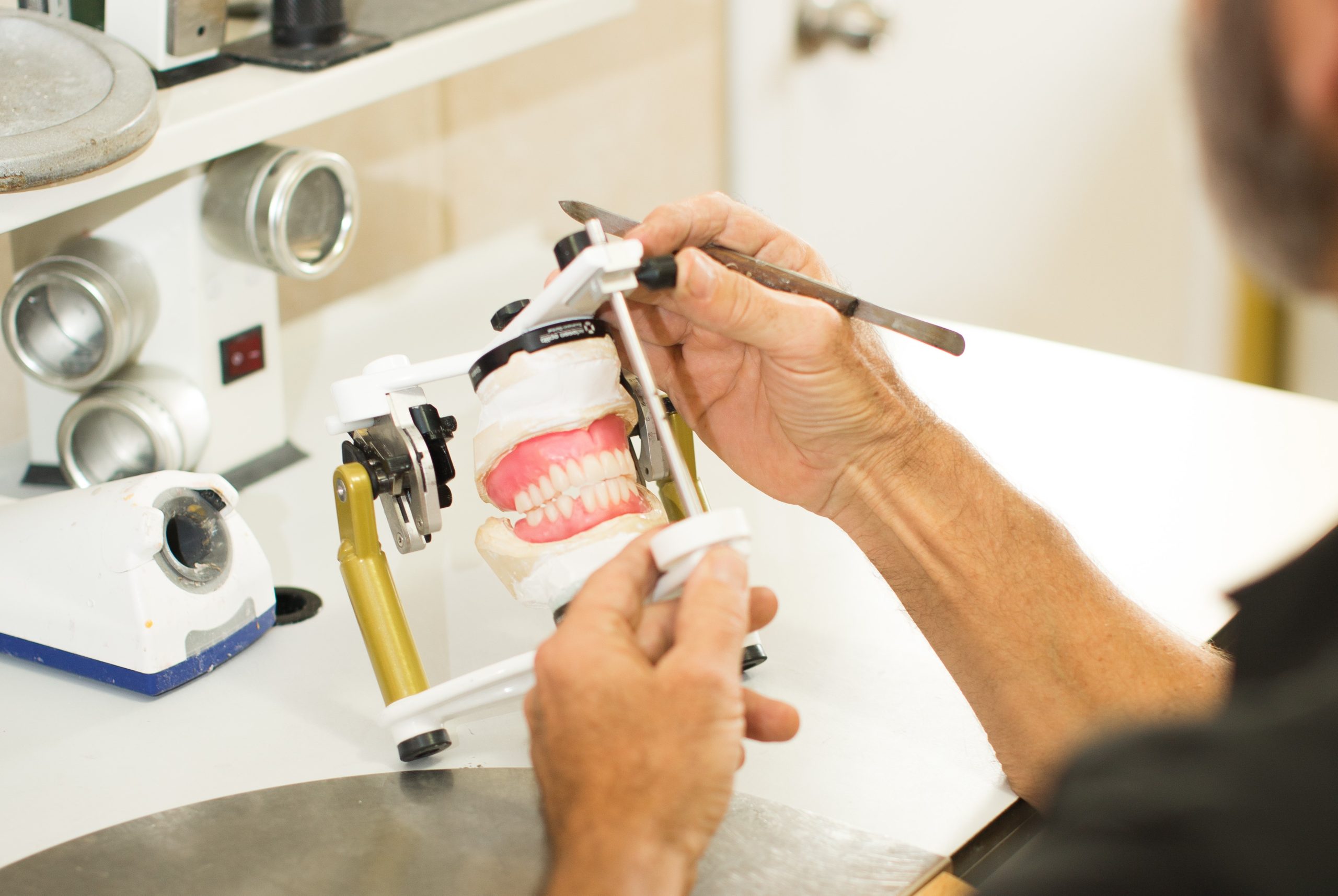
Introduction: The Role of a Dental Lab Technician
Dental lab technicians are the unsung heroes of the dental industry, working behind the scenes to create precise and aesthetically pleasing dental prosthetics. Their expertise is essential in producing a wide range of dental restorations, including crowns, bridges, dentures, and implants. These skilled professionals combine scientific knowledge with artistic talent to craft custom-made dental devices that not only function properly but also look natural and beautiful.
The Importance of Dental Lab Technicians in Patient Care
Dental lab technicians play a vital role in improving patients’ oral health and overall well-being. Their work directly impacts:
- Restoration of proper dental function
- Enhancement of aesthetic appearance
- Improvement of speech and eating abilities
- Boosting patients’ self-confidence
By creating high-quality dental prosthetics, these technicians contribute significantly to the success of dental treatments and patient satisfaction.
Collaboration with Dental Professionals
Dental lab technicians work closely with dentists, orthodontists, and other dental professionals to ensure the best possible outcomes for patients. This collaboration involves:
- Interpreting dental prescriptions and impressions
- Communicating effectively about design specifications
- Providing technical advice on materials and techniques
- Troubleshooting and problem-solving complex cases
The ability to maintain clear and open communication channels with dental professionals is crucial for success in this field.
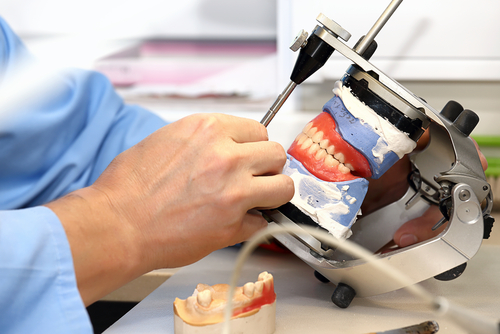
The Art and Science of Dental Laboratory Technology
Dental laboratory technology is a unique blend of art and science. Technicians must possess:
- Scientific knowledge of dental anatomy and materials
- Technical skills in working with various tools and equipment
- Artistic ability to create natural-looking dental restorations
- Attention to detail and precision in every aspect of their work
This combination of skills allows dental lab technicians to produce high-quality, custom-made dental devices that meet both functional and aesthetic requirements.
Education and Training Requirements
Becoming a dental lab technician requires a solid educational foundation and ongoing training to stay current with evolving technologies and techniques. Here’s a comprehensive look at the education and training requirements for this profession.
High School Preparation
A strong high school education lays the groundwork for success in dental laboratory technology. Students should focus on:
- Science courses: Biology, chemistry, and physics
- Mathematics: Algebra, geometry, and trigonometry
- Art classes: Drawing, sculpture, and color theory
- Computer skills: Basic computer literacy and CAD software familiarity
These subjects provide a solid foundation for the more specialized knowledge and skills required in dental lab technology programs.
Post-Secondary Education Options
After high school, aspiring dental lab technicians have several educational paths to choose from:
- Associate’s Degree Programs:
- Duration: Typically 2 years
- Offered by: Community colleges and technical schools
- Focus: Comprehensive training in dental laboratory procedures and technologies
- Bachelor’s Degree Programs:
- Duration: 4 years
- Offered by: Universities and dental schools
- Focus: In-depth study of dental materials, advanced techniques, and management skills
- Certificate Programs:
- Duration: 6 months to 1 year
- Offered by: Vocational schools and some dental laboratories
- Focus: Intensive, hands-on training in specific areas of dental laboratory technology
| Program Type | Duration | Institutions | Focus |
|---|---|---|---|
| Associate’s Degree | 2 years | Community colleges, Technical schools | Comprehensive training in dental lab procedures |
| Bachelor’s Degree | 4 years | Universities, Dental schools | In-depth study of materials, advanced techniques, management |
| Certificate | 6 months – 1 year | Vocational schools, Dental labs | Intensive, hands-on training in specific areas |
Curriculum Overview
Regardless of the program type, the curriculum for dental lab technicians typically covers:
- Dental anatomy and physiology
- Dental materials science
- Dental laboratory procedures
- CAD/CAM technology
- Infection control and safety protocols
- Ethics and professional standards
Students can expect a mix of classroom lectures, laboratory practice, and hands-on training to develop both theoretical knowledge and practical skills.
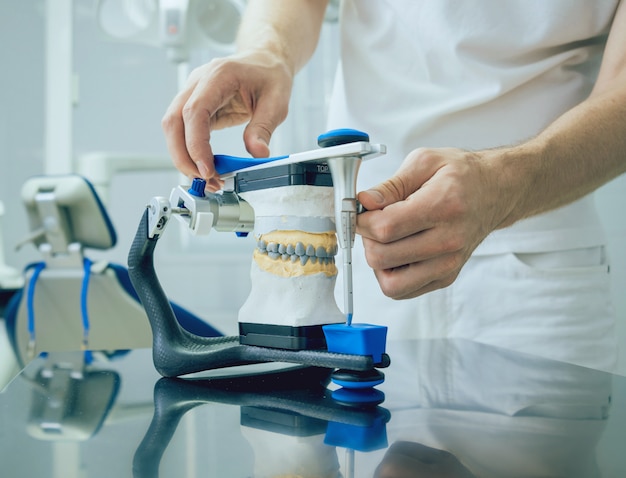
Essential Skills and Qualities for Success
To thrive as a dental lab technician, certain skills and personal qualities are indispensable. These attributes not only contribute to the quality of work produced but also to career growth and satisfaction in this field.
Technical Proficiency
Dental lab technicians must possess a high level of technical skill to create precise and functional dental restorations. Key technical skills include:
- Manual dexterity: The ability to work with small, delicate materials and tools
- Attention to detail: Ensuring every aspect of the restoration meets exact specifications
- Spatial awareness: Understanding how different components fit together in three dimensions
- Color matching: Accurately replicating natural tooth shades for aesthetic restorations
Continuous practice and learning are essential to maintain and improve these technical skills throughout one’s career.
Artistic Ability
Creating natural-looking dental restorations requires a strong artistic sense. Important artistic skills include:
- Sculpting: Shaping materials to mimic natural tooth forms
- Color theory: Understanding how different shades and tints interact
- Aesthetic judgment: Creating restorations that look beautiful and harmonious with the patient’s overall appearance
Developing these artistic skills often involves studying dental anatomy, practicing various techniques, and staying updated on the latest trends in cosmetic dentistry.
Problem-Solving and Critical Thinking
Dental lab technicians often encounter unique challenges that require creative solutions. Essential problem-solving skills include:
- Analytical thinking: Breaking down complex problems into manageable parts
- Adaptability: Finding alternative approaches when standard methods don’t work
- Decision-making: Choosing the best course of action based on available information
- Troubleshooting: Identifying and resolving issues efficiently
Regular exposure to diverse cases and ongoing professional development can help enhance these critical thinking skills.
Communication and Interpersonal Skills
Effective communication is crucial for success in this field. Key communication skills include:
- Clear verbal and written communication: Accurately conveying technical information to dentists and colleagues
- Active listening: Understanding and interpreting instructions and feedback
- Teamwork: Collaborating effectively with other lab technicians and dental professionals
- Customer service: Maintaining positive relationships with dentists and patients
Developing strong interpersonal skills can lead to better working relationships and increased career opportunities.
Time Management and Organization
Dental lab technicians often work on multiple projects with tight deadlines. Essential organizational skills include:
- Prioritization: Managing multiple tasks and meeting deadlines efficiently
- Planning: Developing effective workflows and processes
- Attention to detail: Maintaining accurate records and documentation
- Stress management: Staying calm and focused under pressure
Mastering these skills helps ensure high-quality work is delivered on time, contributing to professional success and client satisfaction.
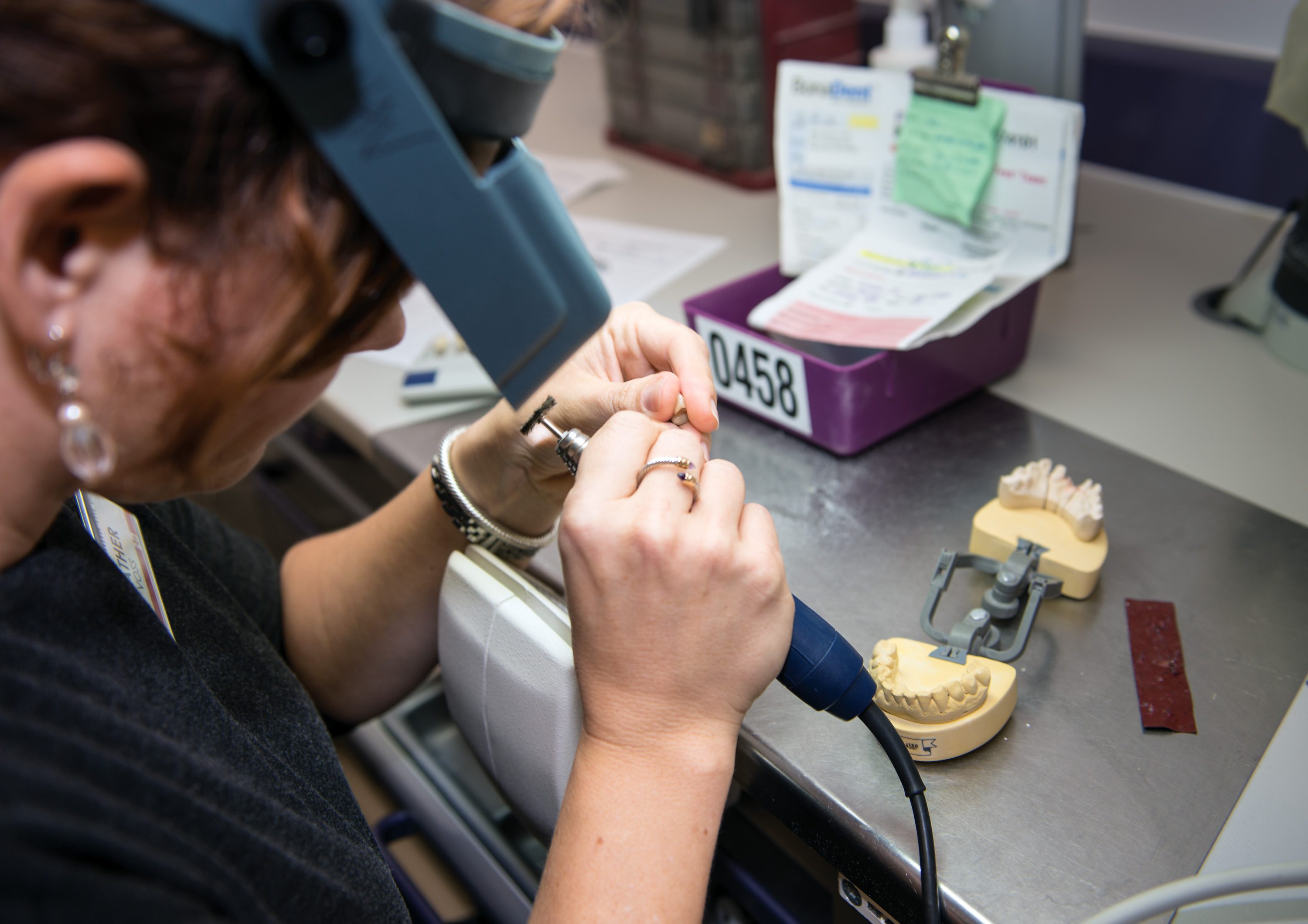
Choosing the Right Dental Lab Technician Program
Selecting the appropriate educational program is a crucial step in becoming a successful dental lab technician. The right program can provide you with the knowledge, skills, and experience necessary to excel in this field. Here are key factors to consider when choosing a dental lab technician program.
Accreditation and Recognition
Accreditation ensures that a program meets established standards of quality and prepares students adequately for their future careers. When evaluating programs, consider:
- Accreditation by the Commission on Dental Accreditation (CODA)
- Recognition by professional organizations like the National Association of Dental Laboratories (NADL)
- State board approval for licensure requirements
Choosing an accredited program can enhance your credibility and job prospects upon graduation.
Curriculum and Course Offerings
A comprehensive curriculum should cover all aspects of dental laboratory technology. Look for programs that offer:
- Foundational courses:
- Dental anatomy and physiology
- Dental materials science
- Oral pathology
- Technical courses:
- Fixed prosthodontics (crowns, bridges)
- Removable prosthodontics (dentures)
- Orthodontic appliances
- Implant restorations
- Advanced topics:
- CAD/CAM technology
- Digital dentistry
- Aesthetic techniques
Ensure the program provides a balance of theoretical knowledge and hands-on practical experience.
Faculty Expertise and Industry Connections
The quality of instruction can significantly impact your learning experience and career prospects. Consider:
- Faculty credentials and experience in the field
- Industry partnerships and guest lectures from practicing professionals
- Opportunities for mentorship and networking
Programs with strong industry connections can provide valuable insights into current trends and potential job opportunities.
Facilities and Equipment
State-of-the-art facilities and equipment can enhance your learning experience and prepare you for the modern dental laboratory environment. Look for programs that offer:
- Well-equipped dental laboratory spaces
- Access to the latest CAD/CAM software and 3D printing technology
- Opportunities to work with a variety of dental materials and tools
Hands-on experience with modern equipment can give you a competitive edge in the job market.
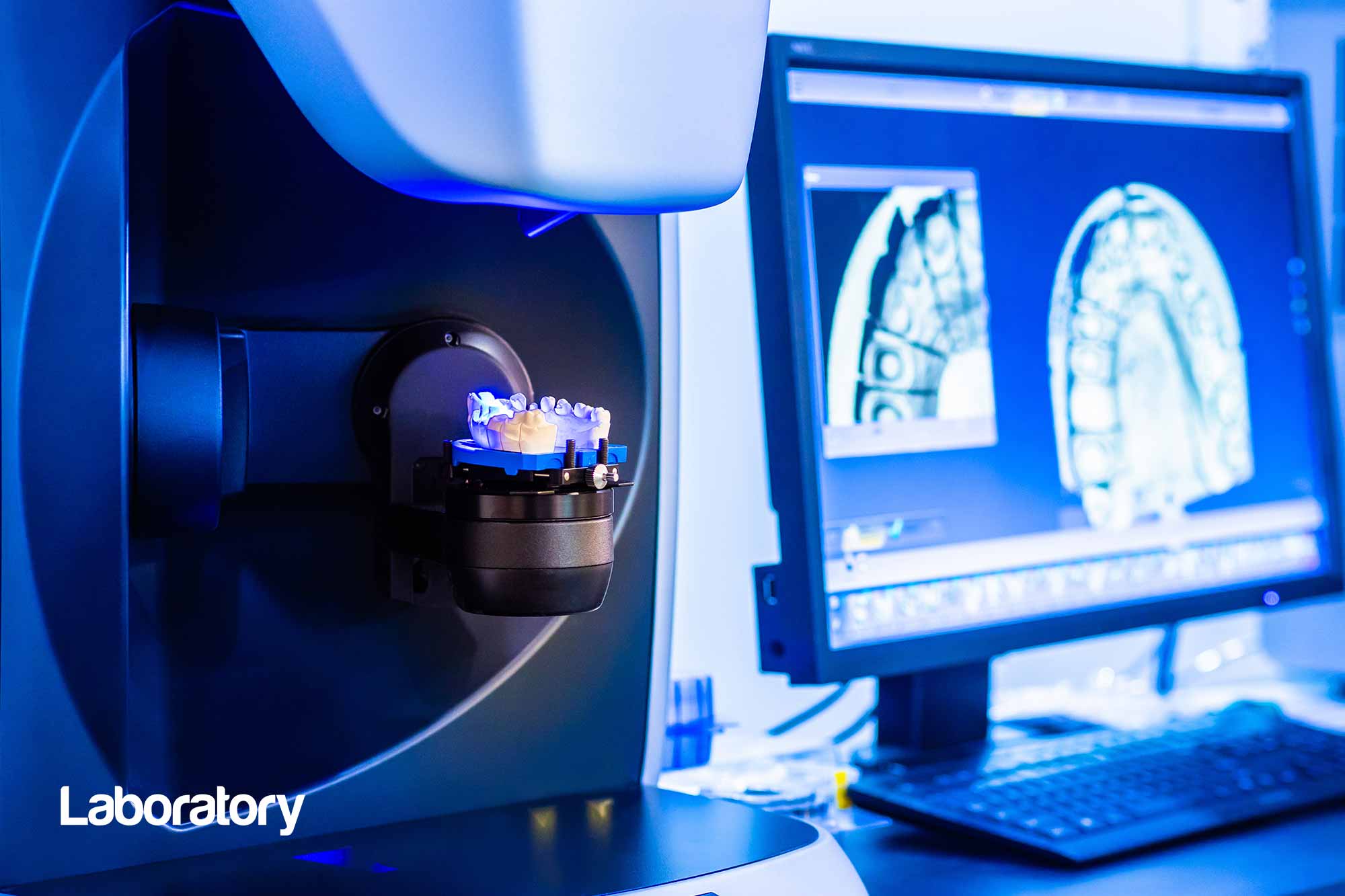
Career Support and Placement Services
A program that offers comprehensive career support can be invaluable as you transition from student to professional. Consider programs that provide:
- Resume and portfolio development assistance
- Interview preparation and job search strategies
- Internship and job placement services
- Alumni networks and continuing education opportunities
Strong career support can help you launch your career successfully and provide ongoing professional development resources.
Gaining Practical Experience Through Internships and Apprenticeships
Practical experience is invaluable in the field of dental laboratory technology. Internships and apprenticeships provide opportunities to apply classroom knowledge in real-world settings, develop essential skills, and build professional networks. Here’s how to make the most of these opportunities.
Finding Internship and Apprenticeship Opportunities
There are several avenues to explore when seeking internships or apprenticeships:
- College career centers and program coordinators
- Professional associations like the National Association of Dental Laboratories
- Online job boards specializing in dental industry positions
- Networking events and dental conferences
- Direct outreach to local dental laboratories
Be proactive in your search and don’t hesitate to reach out to multiple sources for opportunities.
Making the Most of Your Internship Experience
To maximize the benefits of your internship or apprenticeship:
- Set clear goals and objectives for what you want to learn and achieve
- Be proactive in seeking out diverse experiences and challenging projects
- Ask questions and seek feedback from experienced technicians
- Keep a detailed record of the skills you develop and projects you complete
- Network with professionals in the field and build relationships
Remember, an internship is not just about gaining experience, but also about making connections that can benefit your future career.
Transitioning from Intern to Employee
Many internships can lead to full-time employment opportunities. To increase your chances of being hired:
- Demonstrate a strong work ethic and enthusiasm for learning
- Show initiative by taking on additional responsibilities when possible
- Maintain a positive attitude and work well with others
- Communicate your interest in long-term employment to your supervisors
- Ask for letters of recommendation or references for future job applications
Even if a full-time position isn’t available immediately, the skills and connections you gain during your internship will be valuable in your job search.
Certification and Licensure: What You Need to Know
While certification and licensure requirements for dental lab technicians vary by location, obtaining these credentials can enhance your professional standing and career prospects. Here’s what you need to know about certification and licensure in the field of dental laboratory technology.
National Certification
The National Board for Certification in Dental Laboratory Technology (NBC) offers the Certified Dental Technician (CDT) credential. This certification:
- Demonstrates a high level of professional competence
- Is recognized nationwide by dental professionals and employers
- Requires passing written and practical examinations
- Covers various specialties, including Complete Dentures, Partial Dentures, Crown Bridge, Ceramics, and Implants
To be eligible for CDT certification, candidates must typically have:
- Graduated from an accredited dental laboratory technology program, or
- Completed a minimum of five years of documented work experience in dental technology
State Licensure Requirements
Licensure requirements for dental lab technicians vary by state. Some states require:
- Completion of an accredited educational program
- Passing a state-specific examination
- Continuing education credits for license renewal
Check with your state’s dental board or regulatory agency for specific requirements in your area.
Continuing Education and Recertification
Maintaining certification and licensure often requires ongoing education. This typically involves:
- Completing a certain number of continuing education credits annually
- Staying updated on new technologies and techniques in the field
- Attending workshops, seminars, or conferences related to dental laboratory technology
Continuing education not only fulfills certification requirements but also helps you stay competitive in the rapidly evolving field of dental technology.
Building Your Portfolio and Finding Employment Opportunities
A well-crafted portfolio and strategic job search are crucial for launching a successful career as a dental lab technician. Here’s how to showcase your skills and find the right employment opportunities.
Creating a Compelling Portfolio
Your portfolio should highlight your best work and demonstrate your range of skills. Include:
- High-quality photographs of your dental restorations
- Detailed descriptions of the techniques and materials used
- Before and after images to showcase your problem-solving abilities
- Any specialized skills or certifications you possess
Consider creating both a physical portfolio and an online version to maximize your visibility to potential employers.
Crafting an Effective Resume
Your resume should highlight your education, skills, and experience relevant to dental laboratory technology. Include:
- Educational background and relevant coursework
- Technical skills and proficiencies with specific equipment or software
- Internship or apprenticeship experiences
- Any certifications or special training
- Relevant volunteer work or projects
Tailor your resume to each job application, emphasizing the skills and experiences most relevant to the position.
Job Search Strategies
To find employment opportunities as a dental lab technician:
- Utilize online job boards specializing in dental industry positions
- Network with professionals through industry associations and events
- Contact dental laboratories directly to inquire about openings
- Leverage your school’s career services and alumni network
- Consider temporary or contract positions to gain experience and make connections
Be open to entry-level positions that offer growth potential and opportunities to develop your skills.
Preparing for Interviews
To make a strong impression during interviews:
- Research the company and understand their specialties and technologies
- Prepare examples that demonstrate your technical skills and problem-solving abilities
- Be ready to discuss your portfolio and explain your approach to different projects
- Ask thoughtful questions about the role and the company’s future plans
- Follow up with a thank-you note expressing your continued interest in the position
Remember, interviews are also an opportunity for you to assess whether the position and company are a good fit for your career goals.
Essential Equipment and Tools for Dental Lab Technicians
Dental lab technicians rely on a wide array of specialized equipment and tools to create precise and high-quality dental restorations. Familiarity with these tools is essential for success in the field. Here’s an overview of the key equipment and tools used in dental laboratories.
Basic Hand Tools
Dental lab technicians use a variety of hand tools for detailed work. These include:
- Wax carving instruments
- Dental pliers and tweezers
- Spatulas and mixing bowls
- Measuring devices (calipers, rulers)
- Polishing and finishing tools
Mastering the use of these basic tools is fundamental to creating precise dental restorations.
Casting and Molding Equipment
For creating custom dental prosthetics, technicians use:
- Impression trays and materials
- Dental stone and plaster
- Vacuum mixing machines
- Casting machines
- Pressure pots and curing units
These tools allow technicians to create accurate models and cast various dental restorations.
CAD/CAM Technology
Computer-Aided Design and Computer-Aided Manufacturing (CAD/CAM) technology has revolutionized dental laboratory work. Key components include:
- 3D scanners: To create digital impressions of dental models
- CAD software: For designing dental restorations digitally
- Milling machines: To fabricate restorations from digital designs
- 3D printers: For creating models and some dental appliances
Proficiency in CAD/CAM technology is increasingly important in modern dental laboratories.
Furnaces and Ovens
Various types of furnaces and ovens are used for different materials and techniques:
- Porcelain furnaces: For firing ceramic restorations
- Burnout ovens: Used in the lost-wax casting process
- Sintering furnaces: For processing zirconia and other high-strength ceramics
- Curing lights: For polymerizing light-cured materials
Understanding the proper use and maintenance of these heating devices is crucial for producing high-quality restorations.
Safety Equipment
Dental lab technicians must prioritize safety in their work environment. Essential safety equipment includes:
- Personal protective equipment (PPE): Gloves, masks, eye protection
- Dust extraction systems: To remove harmful particles from the air
- Ventilation systems: For working with potentially hazardous materials
- First aid kits and eyewash stations
Proper use of safety equipment protects technicians from potential health hazards associated with dental materials and processes.
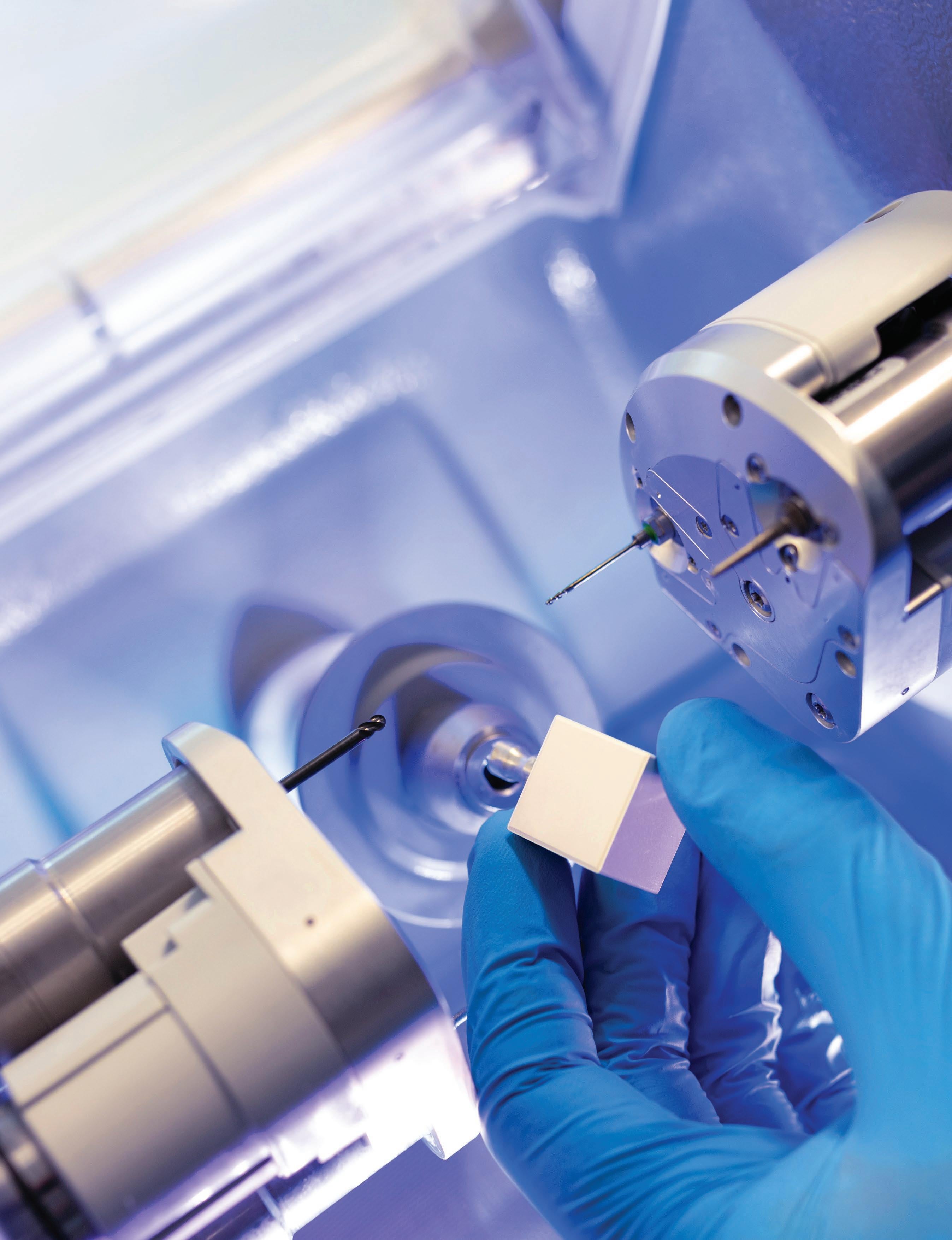
Advances in Dental Technology and the Future of theProfession
The field of dental laboratory technology is constantly evolving, driven by advances in technology and materials. Staying current with these developments is essential for dental lab technicians to provide the best possible care to patients. Here are some key advancements in dental technology and a glimpse into the future of the profession.
Digital Dentistry
Digital dentistry encompasses a range of technologies that streamline the design and production of dental restorations. Key components include:
- Intraoral scanners: These devices create digital impressions of patients’ teeth, eliminating the need for messy traditional impressions.
- Virtual articulators: Software programs that simulate jaw movements to aid in designing occlusal surfaces of restorations.
- CAD/CAM systems: Integrated software and hardware solutions for designing and milling dental prosthetics.
- 3D printing: Additive manufacturing technology used to produce models, surgical guides, and some final restorations.
Digital workflows reduce turnaround times, improve accuracy, and enhance communication between dental professionals.
Biomaterials and Biocompatibility
Advancements in biomaterials have expanded the options available for dental restorations. Materials like zirconia, lithium disilicate, and composite resins offer improved strength, aesthetics, and biocompatibility. Key developments include:
- Bioactive materials: Substances that promote tissue regeneration and integration with surrounding tissues.
- Nanotechnology: Manipulating materials at the molecular level to enhance properties like strength and wear resistance.
- Antibacterial materials: Compounds that inhibit bacterial growth on dental surfaces to reduce the risk of infections.
Understanding the properties and applications of these biomaterials is crucial for creating durable and biocompatible restorations.
Teledentistry and Remote Work
The rise of telehealth services has extended to dentistry, allowing for remote consultations, treatment planning, and monitoring. Teledentistry offers benefits such as:
- Improved access to care for underserved populations
- Reduced travel time and costs for patients
- Enhanced collaboration between dental professionals in different locations
- Increased efficiency in managing patient records and appointments
Dental lab technicians may collaborate with dentists virtually to discuss cases, review digital designs, and coordinate treatment plans.
Artificial Intelligence and Automation
Artificial intelligence (AI) and automation are transforming various aspects of dental laboratory work. AI applications can assist in:
- Analyzing radiographic images for diagnostic purposes
- Predicting outcomes of treatment plans based on historical data
- Automating repetitive tasks like shade matching or restoration design
- Enhancing quality control processes to ensure consistency and accuracy
Embracing AI tools can improve efficiency, precision, and decision-making in dental technology workflows.
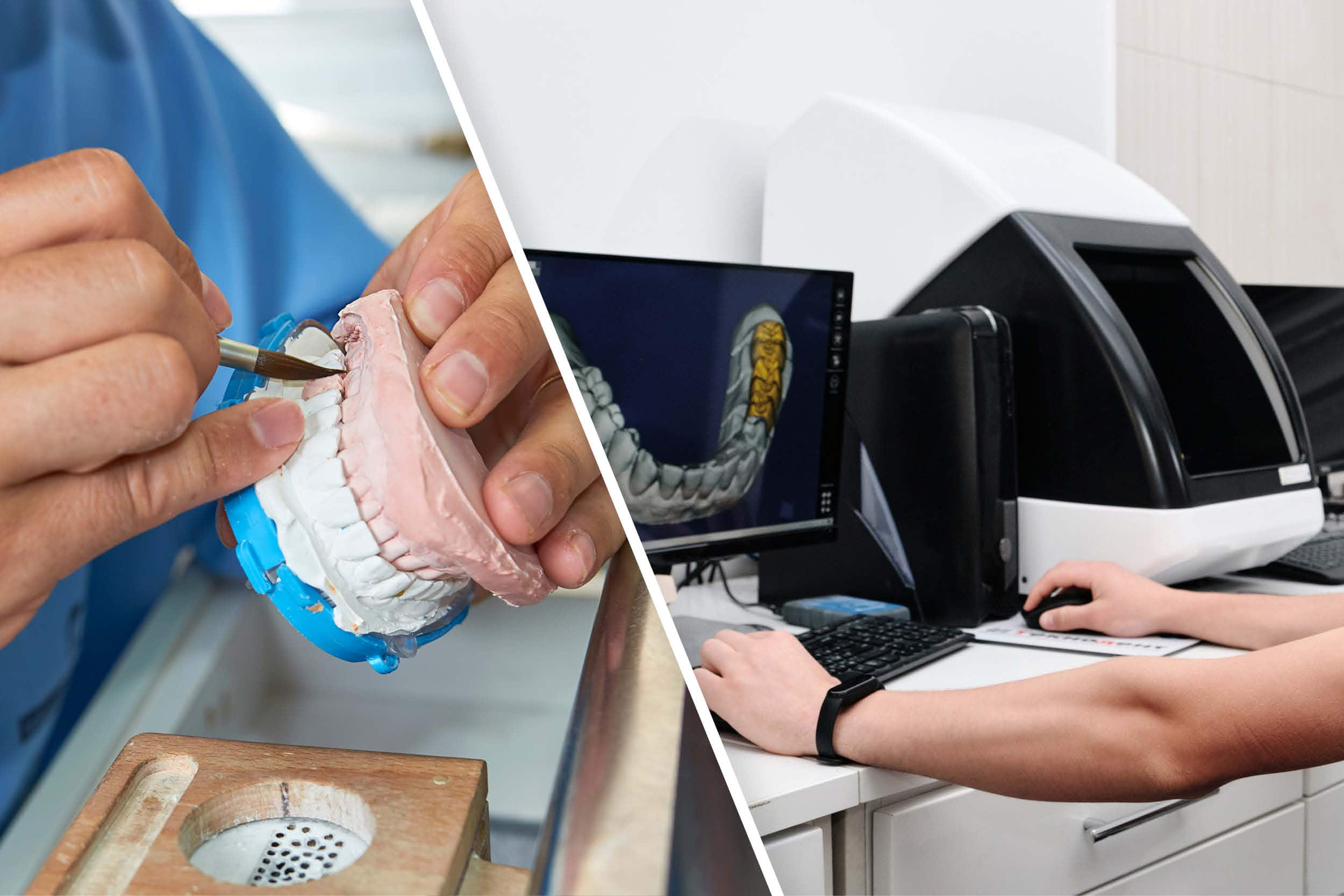
Personalized Medicine and Precision Dentistry
The concept of personalized medicine extends to dentistry, with a focus on tailoring treatments to individual patients’ needs. Precision dentistry involves:
- Genetic testing to assess susceptibility to oral diseases
- Customizing treatment plans based on patients’ genetic profiles and health history
- Using digital technologies to create patient-specific restorations with optimal fit and function
- Monitoring treatment outcomes over time to make data-driven adjustments
By embracing personalized approaches, dental lab technicians can contribute to better patient outcomes and satisfaction.
Conclusion
The field of dental laboratory technology offers a rewarding career path for individuals with a passion for craftsmanship, precision, and oral health. By pursuing the necessary education and training, honing essential skills, and staying abreast of technological advancements, aspiring dental lab technicians can thrive in this dynamic profession. From creating lifelike dental restorations to embracing digital workflows and personalized medicine, the future of dental technology holds exciting possibilities for innovation and excellence. Whether you’re just starting your journey or looking to advance your career, the opportunities in dental lab technology are boundless. Embrace the art and science of dental technology, and embark on a fulfilling career dedicated to enhancing smiles and improving lives.
